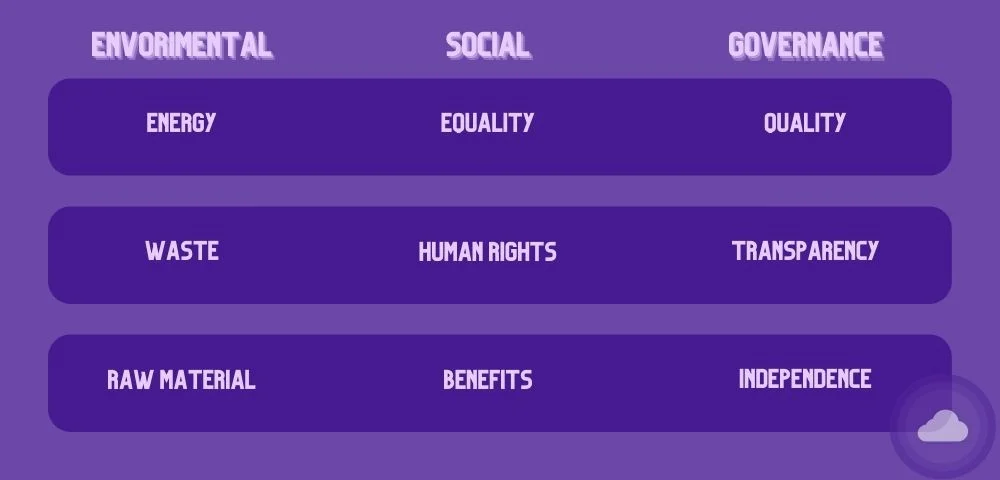
What is ESG?
In the past, companies could attract high levels of investment based solely on their disclosed financial statements. Today, however, for a company to attract substantial investment, it must meet different criteria.
ESG is a parameter that can be used as a criterion for these different characteristics that a company must meet. As we have mentioned in our other articles, as of 2023, we have started to feel the impact of climate change as a whole humanity.
While individual efforts are crucial to minimize this impact, some regulations are also needed for companies engaged in production. So, what is ESG and how does it relate to what has been described?
ESG (Environmental, Social, and Governance) refers to the examination of a company's ESG practices, their impacts, and their progress based on these evaluations. Investors look for "future-thinking sustainable companies" when considering ESG.
Capital markets use ESG to evaluate organizations and determine their future financial performance. It is considered as non-financial indicators such as ethics, sustainability, and corporate governance. It ensures accountability for a company's carbon footprint impact for a sustainable future.

E is for Environmental
The ESG section considers the environmental impacts of companies' activities, which are multifaceted. These impacts include raw material use, energy consumption, and waste management. Companies should minimize environmental damage by adopting sustainable alternatives for raw materials, optimizing energy consumption, and investing in renewable energy.
A company that minimizes its environmental impact is always one step ahead of its competitors in terms of sustainability. This signals investors that the company may continue to exist in the future.
S is for Social
ESG risks related to social implications depend on the company's business and how it affects employees and society.
Social factors in ESG include determining the company's relationship with surrounding communities, how fairly it treats employees, how wages align with hours worked, and whether it has inclusion policies to prevent discrimination among coworkers. A company that focuses on these social aspects can maintain performance continuity for investors.
G is for Governance
In ESG, governance refers to how the company is run. It involves the corporate side of the companies, focusing on the decision-makers who affect the environmental and social impacts.
Governance includes protecting shareholders' rights, aligning the interests of the board of directors and shareholders with company management, and maintaining transparency. Knowing and transparently following their rights and company interests puts the mentioned company in a reasonable position for investment.
Why is ESG Important?
Investors can make decisions based on companies' financial statements and their quarterly performance. ESG, however, is a factor that shows not the quarterly performance but how much space a company can find for itself in the future.
Transparency towards society, the environment, shareholders, and employees shows that a company is built on a solid foundation. One example of a violation of transparency is a German automotive giant using deceptive software between 2009-2015 to pass carbon emission tests for the vehicles it produced.
This software, used in approximately 11 million vehicles worldwide, openly deceived consumers and shareholders. As a result of the disclosure of this situation, the price of a lot of shares fell from approximately 247 euros to 96 euros within one month. Smart investors who do not want to encounter such situations pay attention to ESG reports, which are an audit mechanism for transparency.








